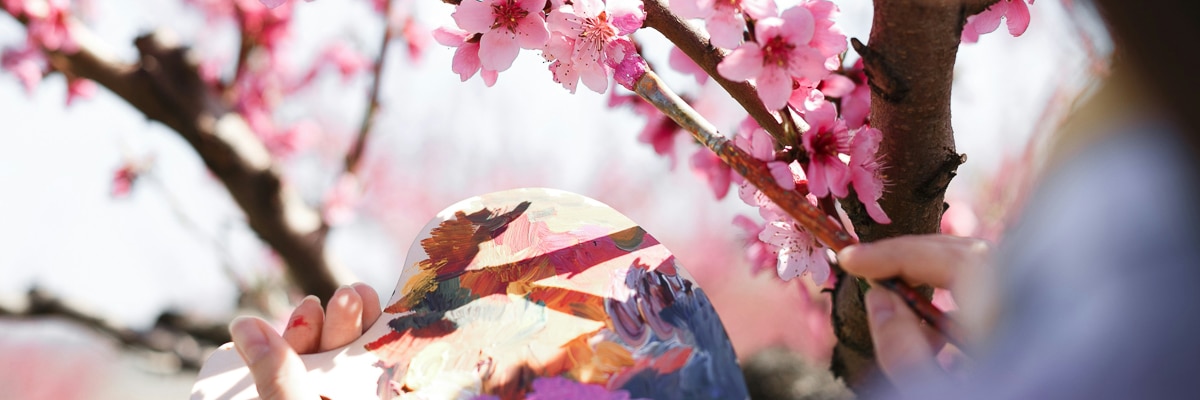
Ever since the creation of the world, God’s invisible qualities—God’s eternal power and divine nature—have been clearly seen, because they are understood through the things God has made. —Romans 1:20
Sarah Augustine, a Pueblo (Tewa) author and activist, identifies what we can learn from creation about the Creator:
This Scripture [from Paul] is consistent with an Indigenous worldview—that the nature of the Creator is evident in the creation. What does creation tell us about God’s divine nature?…
Faithfulness. In the environment where I live, in the foothills of Pahto, the sacred mountain of the region, I see the faithfulness of the Creator with each season. In spite of the consistent [polluting] inputs…, each spring, life returns to the soil, trees and plants flower, and pollinators do their important work to spread the miracle of life. We humans do nothing to earn this. We do not collectively give thanks. Yet each spring returns faithfully, and with it, life.
The interconnectedness and interdependence of the entire cosmos. The Yakama practice reverence in their spring feast, giving thanks before they go to gather. The elders instruct us: take just what you need. Leave plenty for future generations. This implies that life is interdependent; what I do has a direct impact on the lives of other creatures. Living in ways that are consistent with this basic understanding results in abundance….
Creation is ongoing. Creation did not occur in six days and then stop; it is an ongoing process. Reverence means demonstrating deep respect for the plants and animals required to sustain my life and the lives of my family members….
Mutual accountability. Reverence does not happen once per week; it is practiced each day faithfully, moment by moment. It is acknowledging that we are dependent on the systems of life, that they are not subordinate to us or to our will. [1]
The Indigenous caucus at the 10th Assembly of the World Council of Churches shared the ecological wisdom of their traditions:
We as Indigenous Peoples believe that the Creator is in Creation. God revealed himself/herself as Creator and Sustainer in the act of creation. The triune God along with land co-parents all life. The mystery in John chapter 1 unfolds how the Creator abides in creation. The incarnation of God in Christ becomes totality in God’s creation…. Through God all things were made, without God nothing was or is made. In God there is life, and in God is the light of all Creation. The presence of God made the world and therefore [it] is sacred. The work of creation in God is the unity of diversity, where all lives coexist in a harmonious balance because they are all from God. Each seed that sprouts begins creation anew, and not one seed can grow unless the Creator enables it. We believe that doing justice to God’s creation is the basis of liberation and the human search for selfhood. [2]
References:
[1] Sarah Augustine, The Land Is Not Empty: Following Jesus in Dismantling the Doctrine of Discovery (Harrisonburg, VA: Herald Press, 2021), 190–191, 194.
[2] “Indigenous Peoples Pre-Assembly Statement” (unpublished), World Council of Churches 10th Assembly, Busan, 2013. Quoted in The Land Is Not Empty, 195.
Image credit and inspiration: Jennie Razumnaya, Blooming Peach Garden (detail), 2022, photo, Los Angeles, Unsplash. Click here to enlarge image. We’re invited into the beauty of creation, receiving and offering, just like this artist painting the petals of a cherry blossom.
Story from Our Community:
I often think about life and death as a repeating cycle. When I think of the little girl I used to be, I know she’s gone and I stand in her place…. I no longer see her reflection in the mirror. Instead, I see an older person with wrinkles and grey in her eyebrows. This gives me hope for the future of our world. The constant repetition of death and rebirth means that all will never be lost. We’re in the hands of our Creator who made life restorative and beautiful, always giving birth to something fresh and new.
—Sharon B.




